Ring Video Doorbell Pro Review
Ring Video Doorbell Pro Review
A neat and powerful mains-powered video doorbell
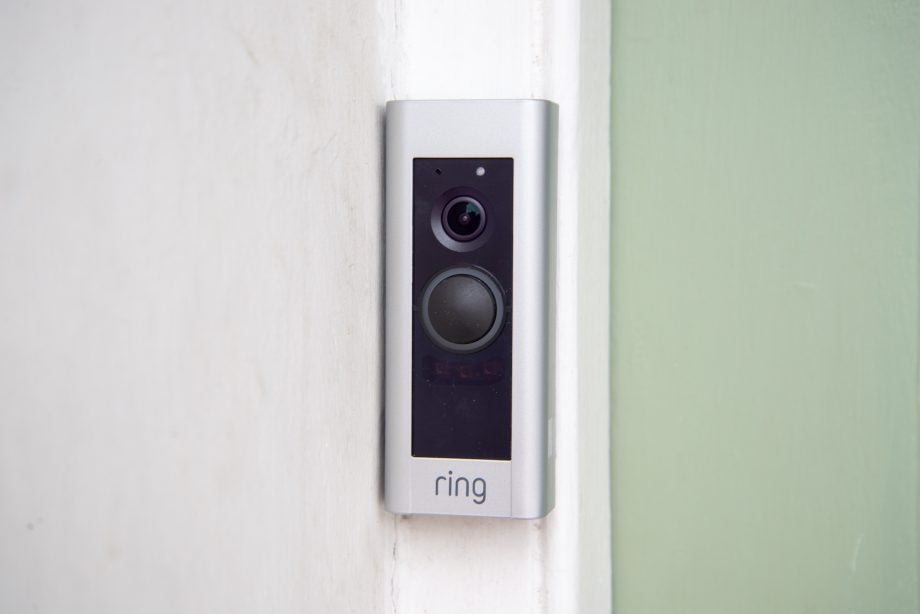
Verdict
A powerful and flexible way to protect your home, the Ring Video Doorbell Pro is a step up from the battery-powered models and is a better choice if you have a mains-powered doorbell, as you get full motion detection activity zones to cut down on the number of alerts you get. A slim body and choice of cases makes this doorbell look great, and you get everything you need for installation in the box.
Pros
- Full colour night vision
- Choice of colours in the box
- Excellent performance and activity zones
Cons
- Have to answer in landscape mode
- Timeline view is a bit fiddly to use
Key Specifications
- Review Price: £229
- 114 x 47 x 20mm
- 1080p resolution
- 160-degrees field of view
- Cloud recording via subscription
- Colour night vision
- Amazon Alexa
As good as the Ring Video Doorbell 2 is, the fact that it needs a battery means that it’s quite a chunky bit of kit to install. If you’re looking for something a bit neater, the Ring Video Doorbell Pro could be the one for you. Permanently wired, the doorbell takes up less room and it has proper motion detection zones, rather than relying on a PIR motion sensor.
Ring Video Doorbell Pro – What you need to know
- Installation: Ring provides everything you need in the box and the slim doorbell should fit on most door frames. As this model is wired, you may want to go for professional installation.
- Detection performance: Permanent power means you can set activity zones, limiting the number of alerts to just people walking up to your front door.
- Image quality: There’s no HDR on this model, so backlit people can lose a bit of detail, but the image is sharp and the full-colour night mode is excellent.
Related: Best security camera
The Ring Video Doorbell Pro looks great and has everything you need to install it in the box
The Ring Video Doorbell Pro looks much neater than the chunky Ring Video Doorbell 2. As the Pro needs to be permanently wired in place, there’s no need for a battery. While I needed a corner bracket to fit the Video Doorbell 2 in place, due to the small door frame on my Victorian house, the Pro just fitted in.
There’s get a choice of face plates in the box, too, so you can pick the colour that you like the most or that best matches your door. The result is a far neater and more professional-looking doorbell.
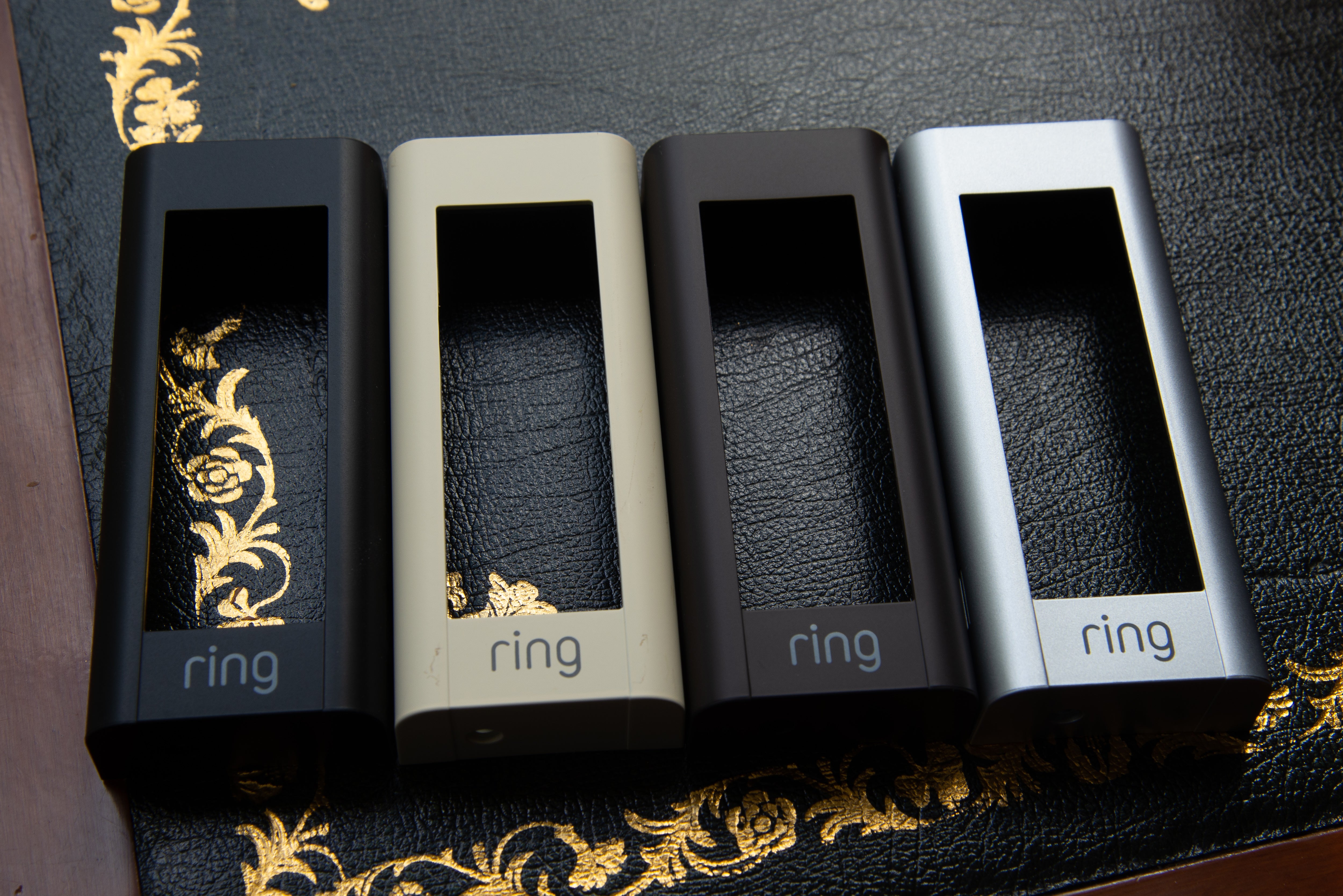
A choice of faceplates ensures that the Ring Video Pro will match the colour of your house
The tradeoff is that the Ring Video Doorbell Pro needs to be permanently wired. It requires a 24V transformer to power it, and most UK doorbells are 12V. Fortunately, Ring provides a transformer in the box, which is designed to be mounted on the DIN rail of your consumer unit. Full instructions are provided, although you may feel more comfortable getting a professional to install your doorbell.
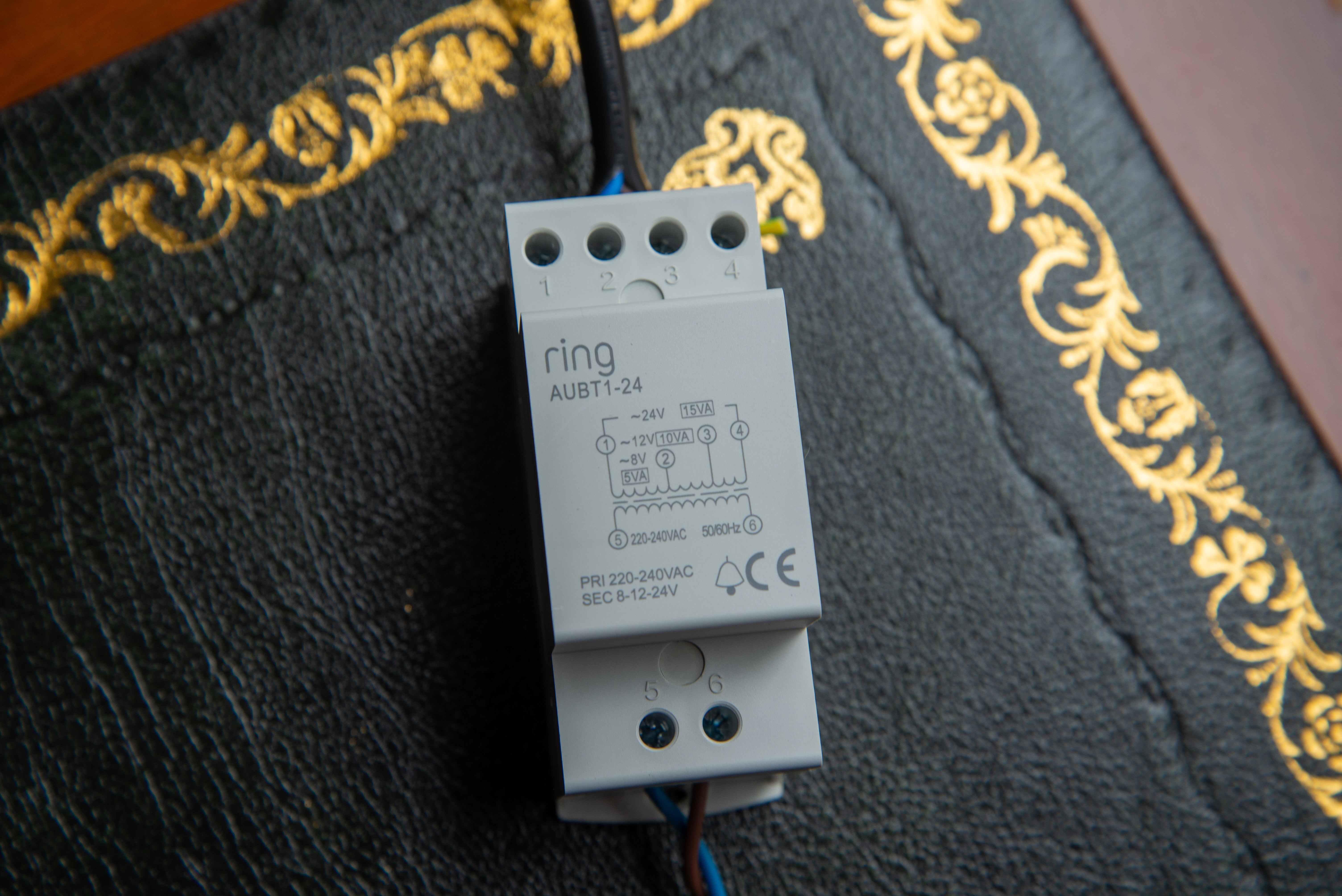
The transformer in the box is excellent, so you have everything you need to get started
If you don’t have wiring, then Ring has just started selling a plug-in adaptor. All you have to do is run the provided cabling from a nearby power socket to the doorbell, so you may only need to drill a single small hole in your door frame. It’s a neat addition that could make installation a lot simpler for many.
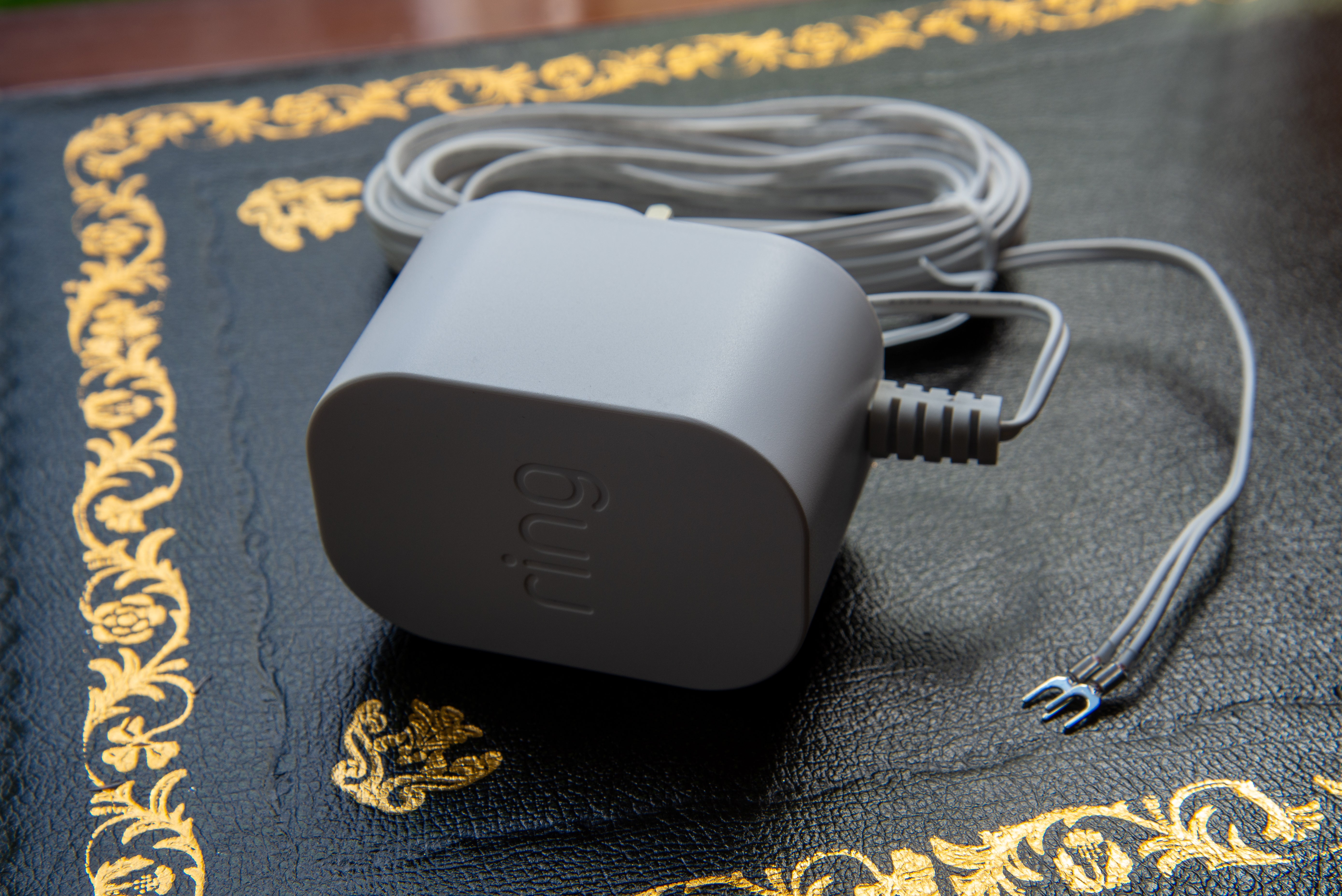
The plug-in adaptor means that you can install the doorbell easily if you have a plug close enough
As most UK internal bells and chimes work on 12V, there’s a good chance that the Ring Video Doorbell Pro won’t work with your existing bell to notify you when someone has pushed the button. Ring provides a bypass box: you unscrew the power cables from your chime and stick them into the box.
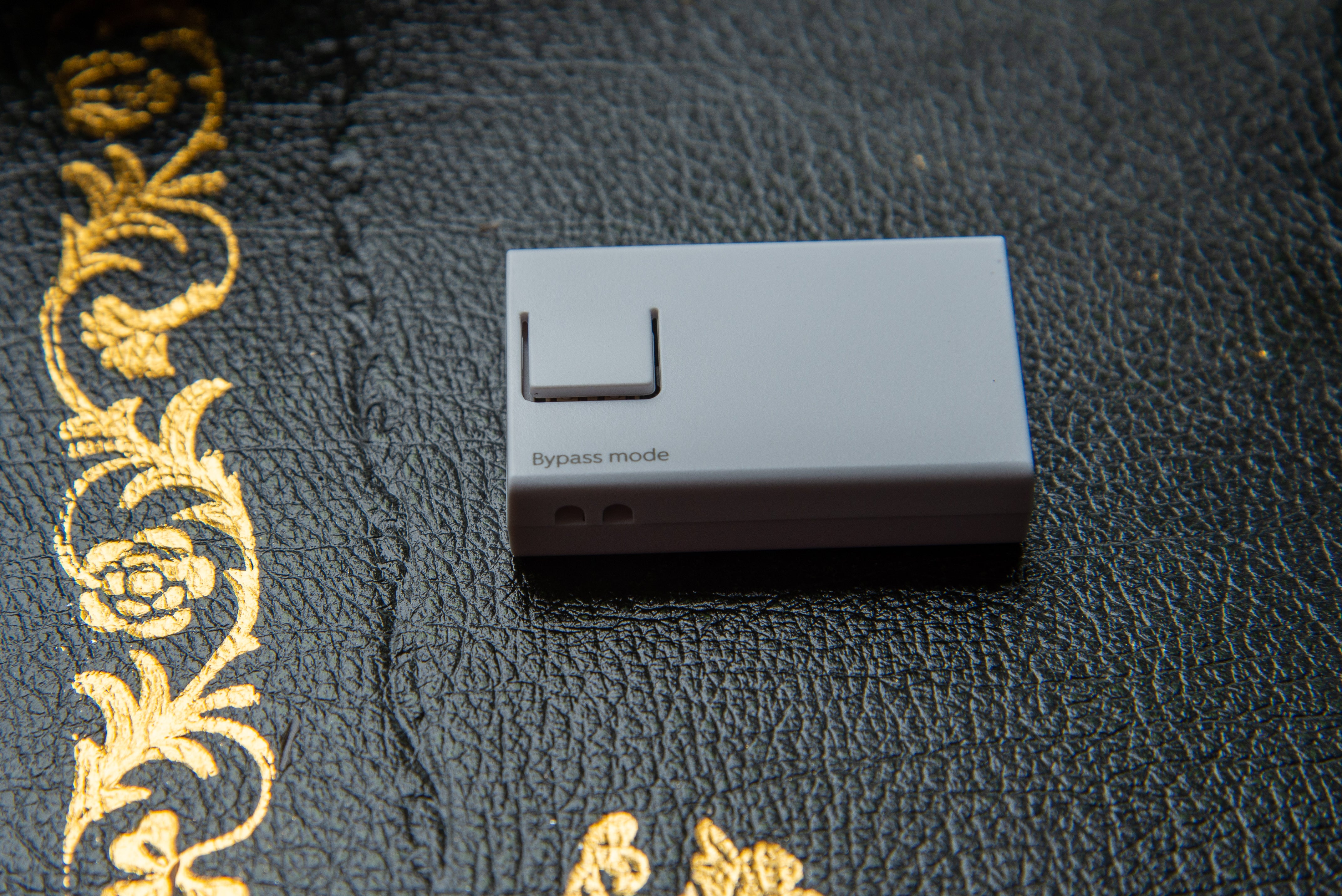
Your old chime most likely won’t work, so you’ll need the bypass box
Technically, if you’ve got a chime that will work on 24V you won’t need to do this, and the Ring Pro can sound your internal door. In any case, it’s nice to see that Ring also provides a plug-in chime that you can place anywhere in your home, which you can set to ring when someone presses the doorbell.
Note that if you wire in the Ring Video Doorbell 2, it should work with your existing chime without any modification, as this doorbell can be powered by a standard 12V transformer.
Related: Nest Hello vs Ring Video Doorbell 2
Permanent power means that you get proper motion detection zones with the Ring Video Doorbell Pro
All Ring Video Doorbells can be set to record video when they detect motion, but the Ring Video Doorbell Pro has an advantage over its battery-powered siblings: proper motion detection zones. As the camera is permanently powered, motion detection is performed in the cloud by checking the video stream: motion inside a zone is recorded and an alert is sent. This means that you can very carefully select the areas that you want to monitor, dramatically reducing the number of alerts that you get.
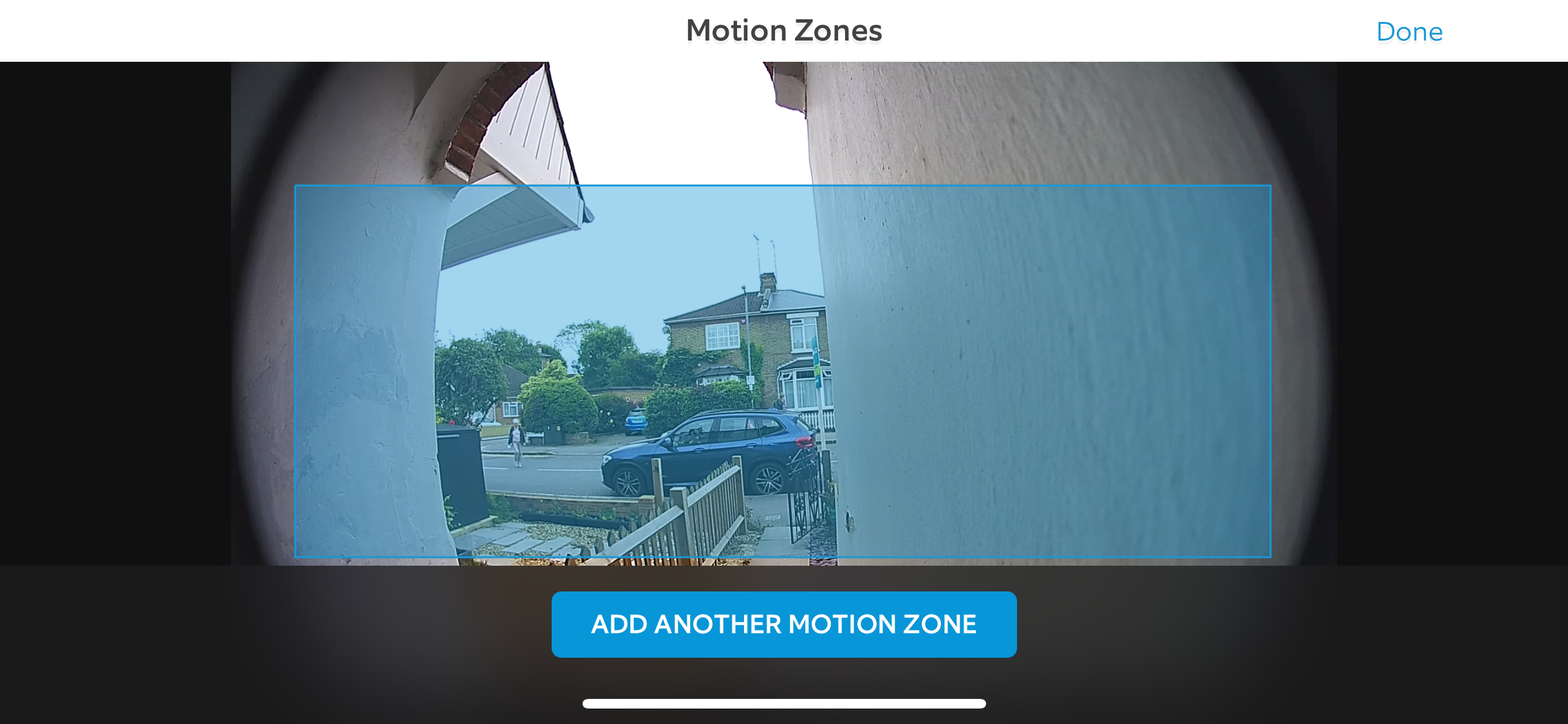
Activity zones helps to cut down the number of alerts that you get
Battery powered Ring Doorbells use a PIR motion sensor. You can adjust range and the zones that are used, but I found that still got more notifications with the Doorbell 2 than compared with the Video Doorbell Pro. Even though the Pro gives you fewer alets, I like the Snooze feature in the app which stops motion notifications coming through for a set period (15 minutes, 30 minutes, 1 hour or 2 hours), which is handy if you have people coming in and out a lot, such as workmen doing a job on your house.
Recordings are saved to the cloud if you have a Ring Protect Plan, which costs a resonable £2.50 per month (£24.99 annually) for one doorbell, with 30-day storage. If you upgrade to the £8 per month plan (£80 annually), you get 30-day recording for unlimited devices. If you’ve got more than three Ring cameras, such as the Stick-Up Cam and Floodlight Cam, this is excellent value.
In all cases, the cloud subscription is cheaper than that of rival Nest Aware’s Nest Hello doorbell, although I should point out that Nest gives you continuous recording, so it captures everything.
Tap the live view in the app and you can use the timeline to skip back to see events. It would help if each event had a thumbnail to make it easier to see the one you want, and the timeline could do with being a bit more fluid to scroll through; currently, it’s quite laborious to scroll back in time if you have a lot of events. However, you can use the filter options to skip to a specific day and view alerts by type (motion, rings and live), although the filter option only appears after you’ve selected a day or swipe back to view the most recent event.
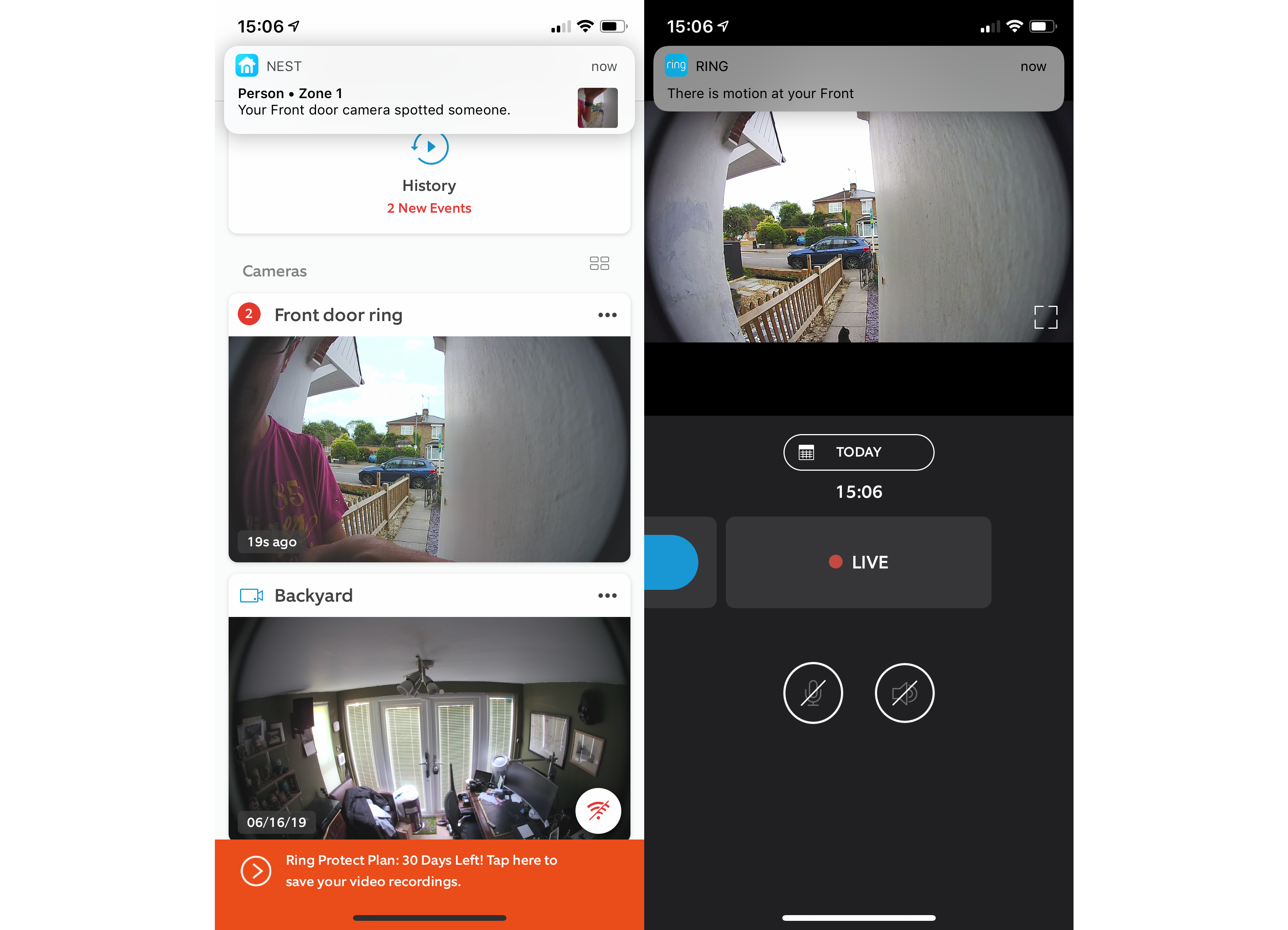
The timeline lets you swipe through recent events, although it could do with being a bit more fluid
Alternatively, you can use the Recent Activity menu, where you get a long list of recorded events. You can filter by event type (Motion, Rings and Live View recordings), but this view could do with thumbnails of events.
The Ring Video Doorbell Pro’s image quality is excellent but the Alexa integration and app could do with a couple of tweaks
When someone presses your doorbell, your phone is notified to let you know that someone’s at the front door. It can take up to 30 seconds for the alert to come through, which should be fast enough to capture most people, even couriers trying to hotfoot it out of your garden.
Annoyingly, the app still opens in landscape mode, which makes your phone far harder to hold than if you could answer in portrait mode. It’s a minor complaint, and voice quality for the two-way chat is excellent.
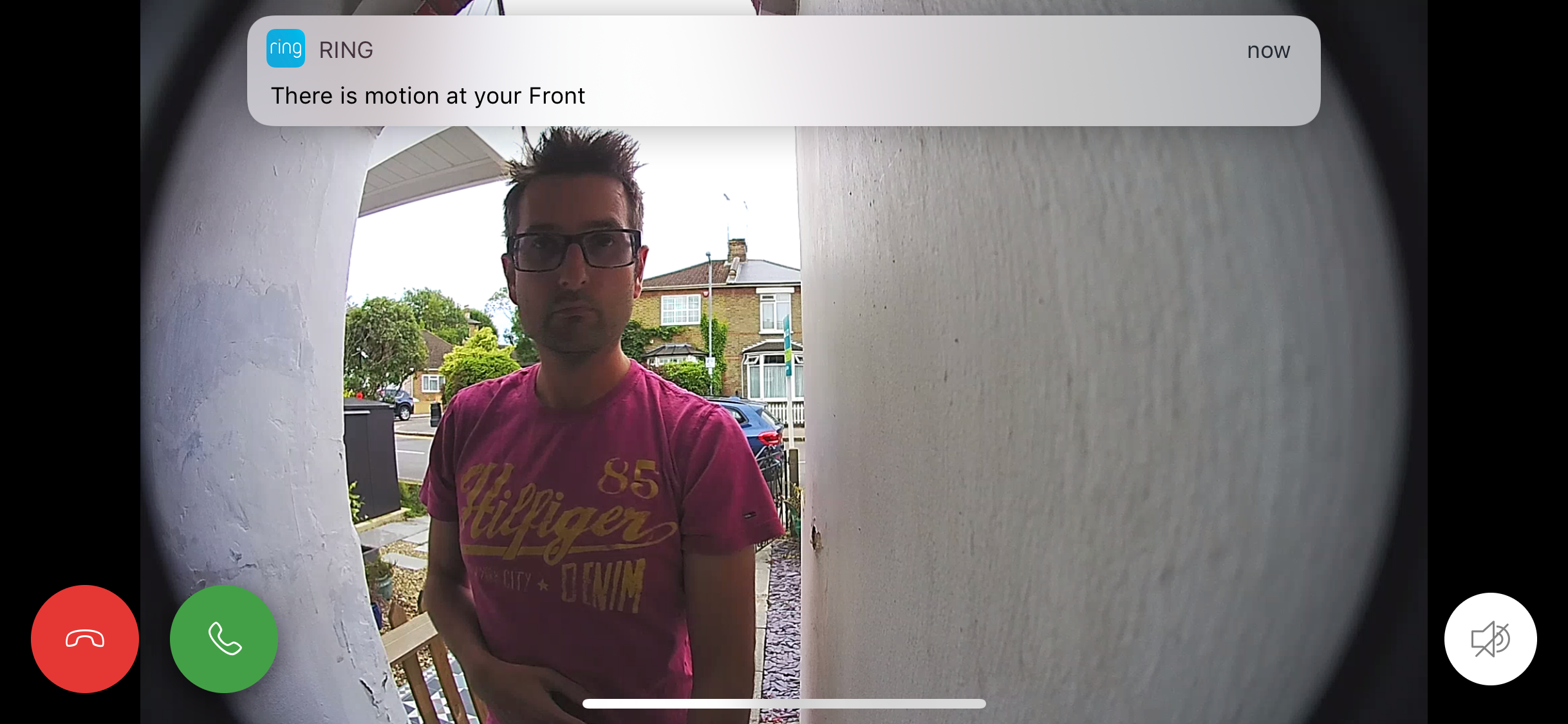
You can only answer in landscape mode, which is a bit frustrating
Image quality is generally excellent, too, thanks to the Full HD sensor in the camera. I found that people were detailed during the day, although the position of the sun (my door is south facing) meant that strong backlighting could make faces a little dim. Unfortunately, there’s no HDR on this camera to help correct the issue. Still, I could easily work out detail in faces and the video was very sharp.
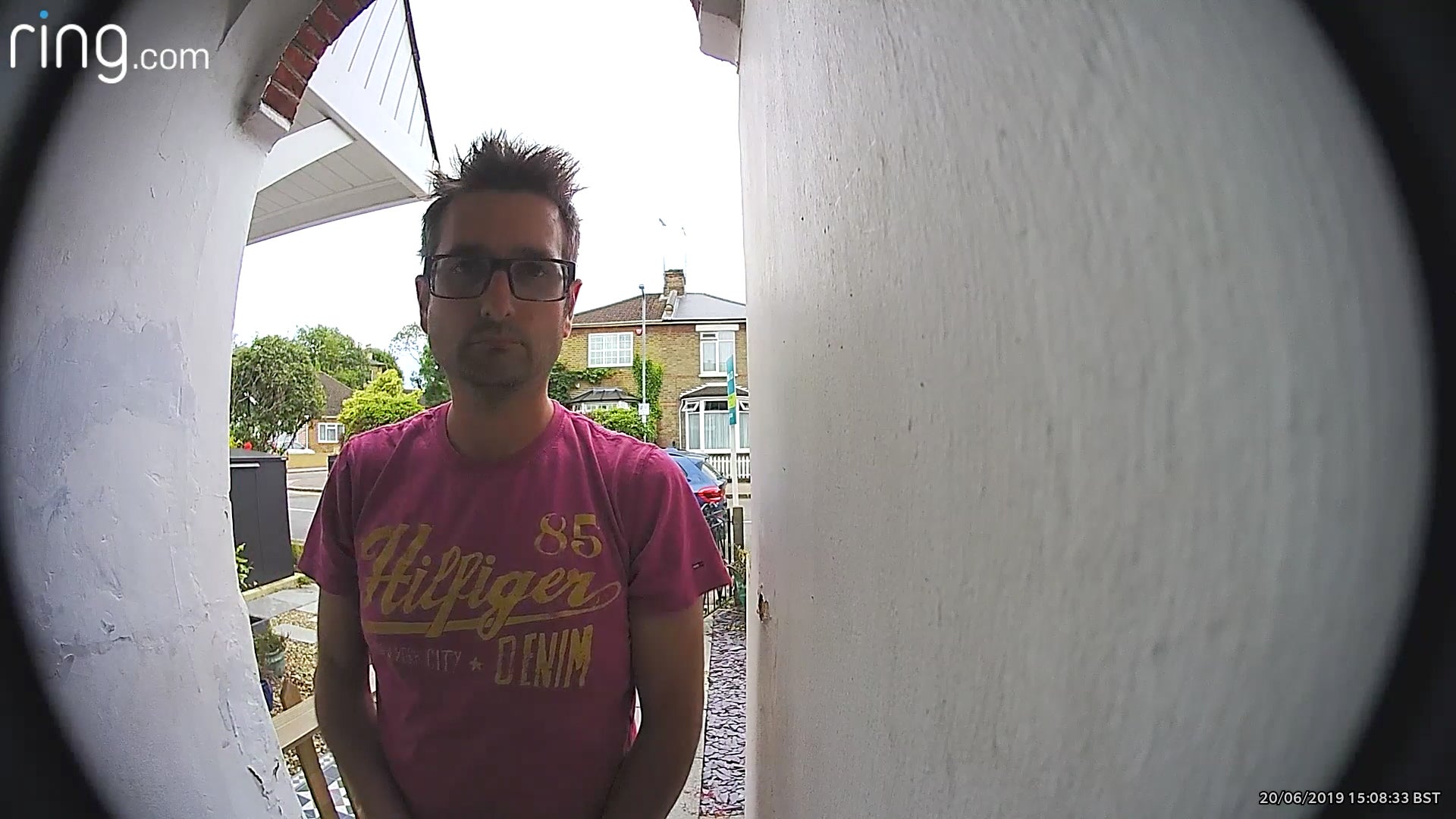
There’s no HDR, so backlit faces can lose a little bit of detail
At night, the Video Doorbell Pro can turn on a full-colour mode, rather than relying on a black and white image lit by IR. The result is amazing, with the best quality I’ve seen from a doorbell, making it much easier to see who’s at your door.
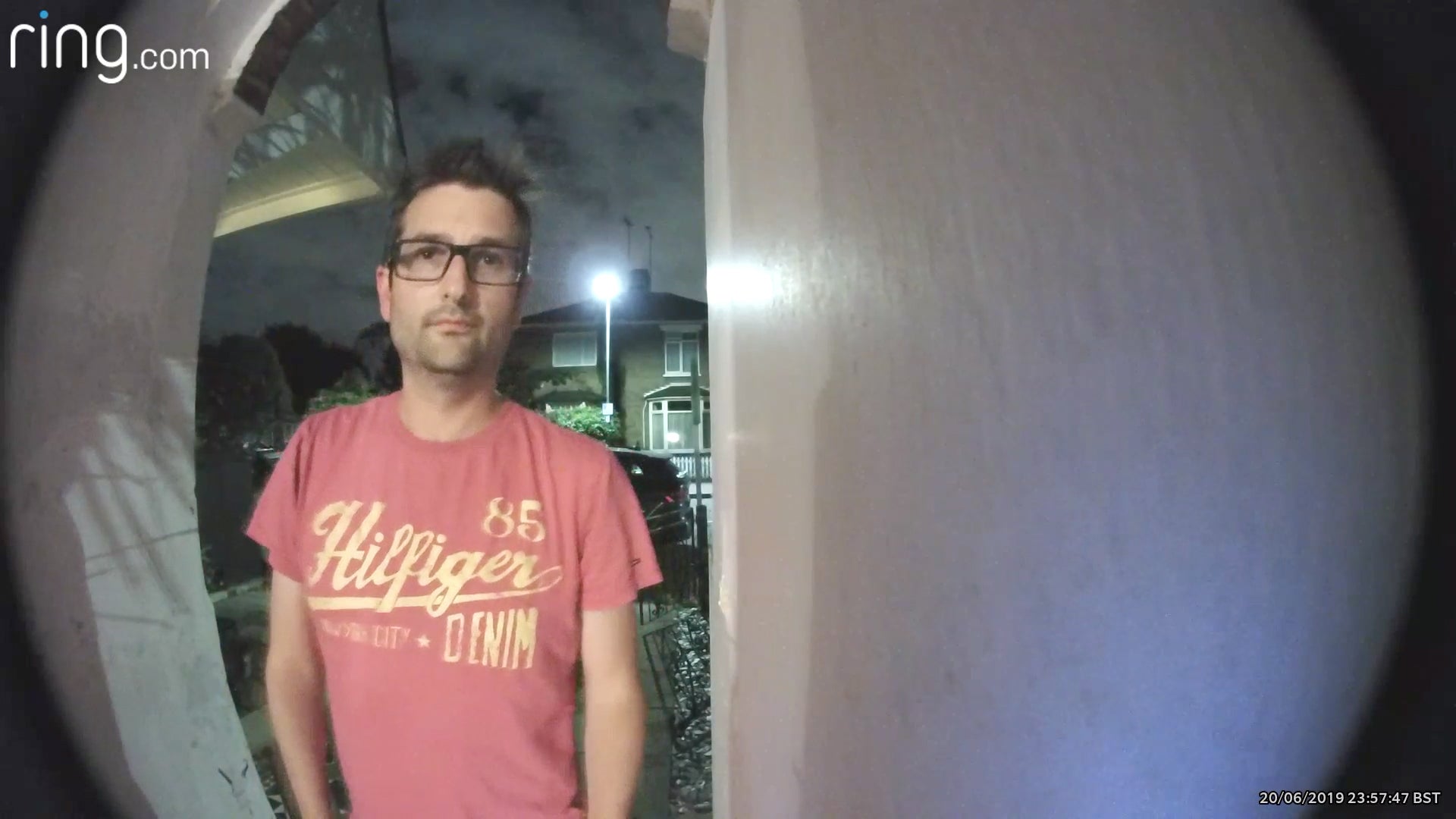
Full colour night vision looks fantastic
If you have Amazon Echo devices with the Ring skill installed, a doorbell push also sounds a message out of your smart speakers. If you have an Echo Show or Echo Show 5, you can answer the door too, although you have to speak to do so, saying the name of your Ring device, such as, “Alexa, answer front door”. It’s a bit clunkier than the Nest Hello and Google Nest Hub integration, where the smart display shows a video of who’s at the door and has onscreen controls for answering. There’s currently no Google Assistant integration, not even for viewing the video feed.
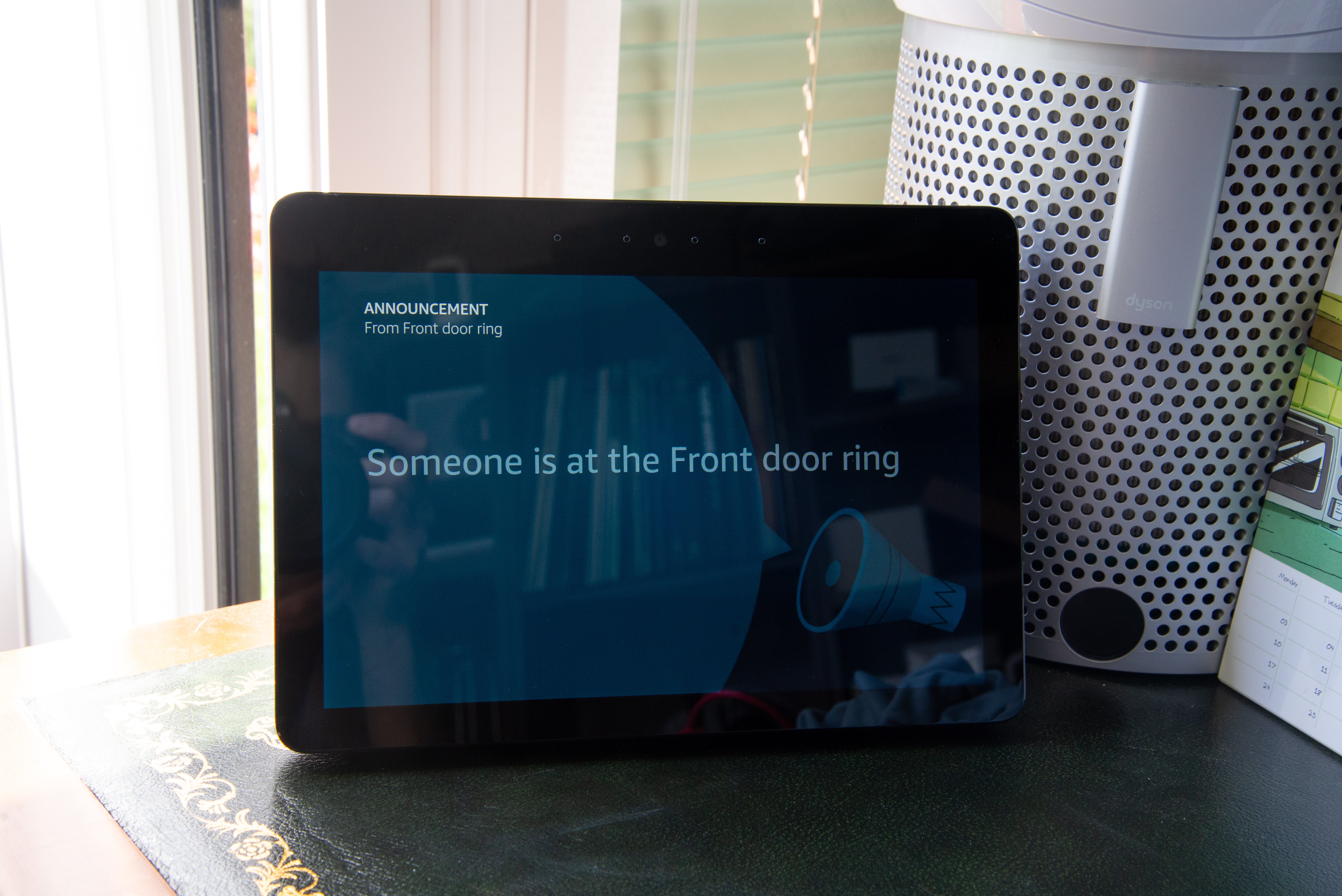
Echo Show integration is nice but it would be better if you automatically saw a preview of your front door
When you do answer using an Echo Show, the video and voice quality is excellent and I found this option faster than fiddling around with my phone when I was at home.
It’s nice to see that the Ring Video Doorbell Pro can work with Samsung SmartThings, too. You can view live video, but you can also use the camera’s motion sensor and button to trigger other events. For example, you could have a light turn on automatically when the doorbell button is pressed.
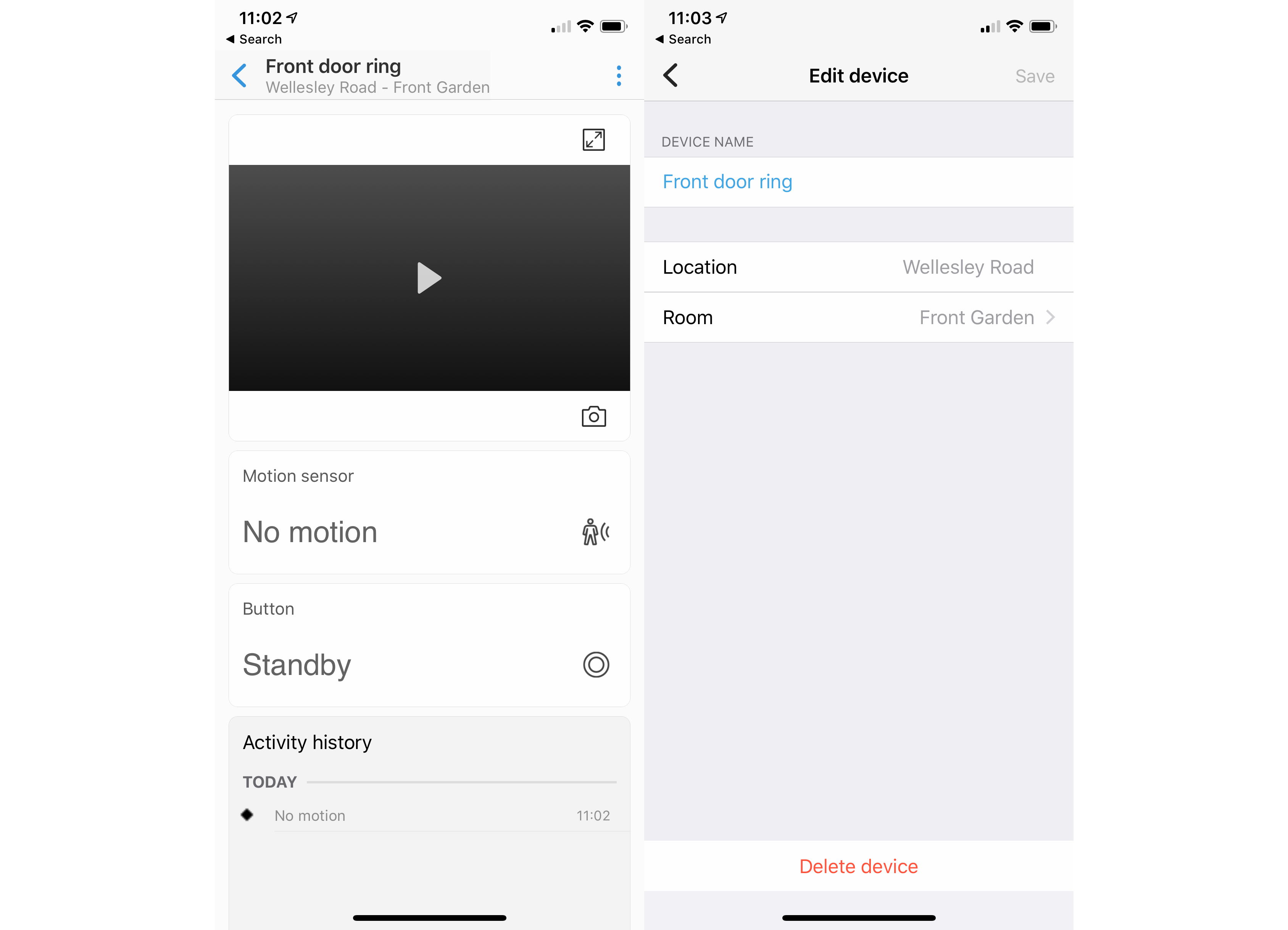
Ring Video Doorbells integrate with Samsung SmartThings
There’s an IFTTT channel to do something similar, although these automations can often be a bit slow to run.
Should I buy the Ring Video Doorbell Pro?
The Ring Video Doorbell Pro is the best doorbell that Ring sells. It’s neater and looks better than the Ring Video Doorbell 2, and the permanent power here means that motion detection zones are better. This, in my opinion, makes the Pro worth buying if you have or can get power to your front door. The Video Doorbell 2 makes more sense if you can only go with battery power.
The main competition here is from the Nest Hello, which is also permanently powered. The Ring Pro has better-quality night vision, but the Nest Hello has facial recognition and continuous recording, so you’ll need to work out which features are best for you. Ultimately, it may come down to something simple: which smart speakers you have.
The Nest Hello only broadcasts door pushes from Google Assistant devices and you need a Google smart display to answer. The Ring Video Doorbell does the same but only with Amazon Alexa devices.
Ultimately, a few minor niggles aside, the Ring Video Doorbell Pro is a mature and neat way of protecting your front door – and it’s well priced, considering that the box contains everything you need. If you’ve got power to your front door, I’d buy this model over the battery-powered Ring devices.


